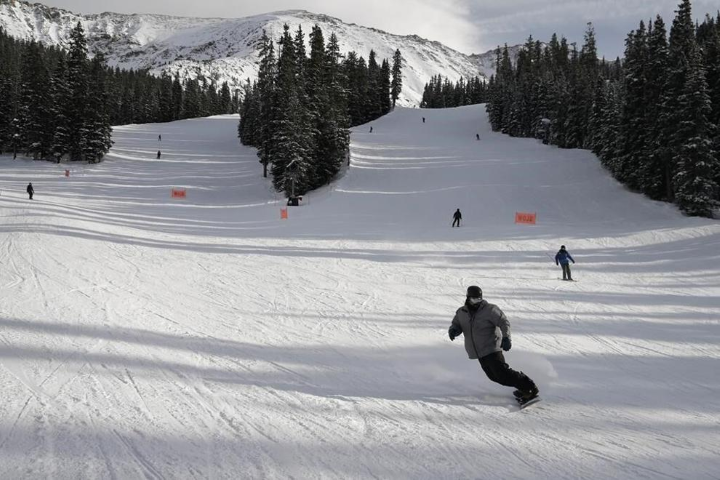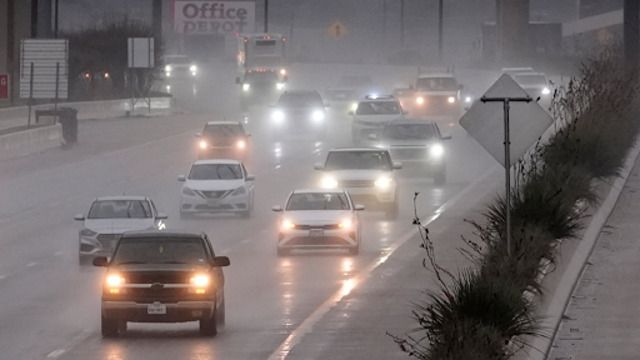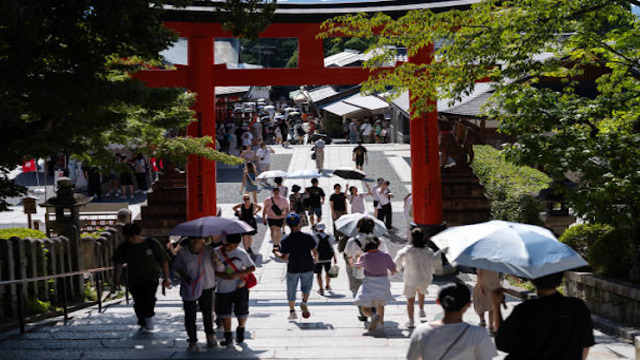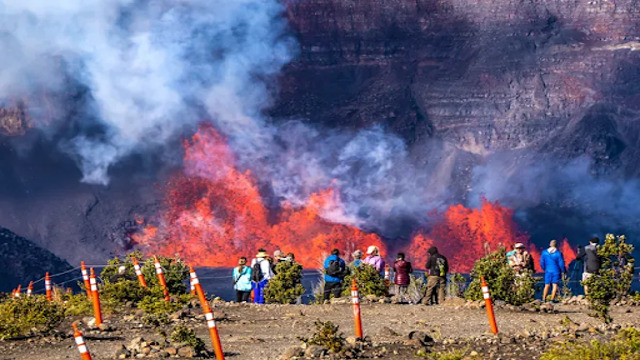
British Columbia's abnormally warm winter has left local ski resorts grappling with the lack of snow during the crucial holiday tourism season, as resorts struggle to keep runs open. (AP Photo/Brittany Peterson)
The unseasonably warm winter in British Columbia is posing challenges for local ski resorts, which are grappling with a lack of snow during the crucial holiday tourism season. Whistler Blackcomb, one of the prominent resorts, has less than half of its trails open, while Mount Seymour in Vancouver remains entirely closed, awaiting improved conditions.
The elevated temperatures, linked to the El Niño climate phenomenon, have set record highs in various regions, including Metro Vancouver, Greater Victoria, the Sunshine Coast, and the Okanagan. Whistler, located 120 kilometers north of Vancouver, reported no snow on the ground on Christmas Day, a stark contrast to the 40 centimeters of snow last Christmas.
As of Thursday, Whistler Blackcomb resort had only 117 of its 275 trails open, representing 42% of its terrain. Metro Vancouver's ski hills, such as Cypress and Grouse mountains, are also significantly impacted, operating only a fraction of their runs.
Mount Seymour closed entirely during the week, with hopes of receiving more snow. Apex Mountain Resort in the Okanagan region echoed the challenges, noting that resorts across the province are notably behind schedule due to warm weather. Resort managers emphasize the importance of the Christmas holidays for their financial outlook, expressing concerns that losses during this period are challenging to recover later in the season.
Despite having snow-making capabilities, resorts faced difficulties when temperatures were too warm to produce snow. Cypress Mountain in West Vancouver warned skiers of "thin snow coverage," and many resorts resorted to offering discounted passes to attract visitors. Environment Canada meteorologist Brian Proctor attributed the prolonged warm weather to a blocking pattern caused by a ridge of high pressure, preventing El Niño-generated warm air from moving inland.
While the long-term forecast suggests a return to more seasonal temperatures in January, with potential snowfall in higher elevations, coastal areas may continue to face uncertainties. Proctor cautioned that the influence of El Niño might persist into the early spring, urging skiers and resorts to manage their expectations.















